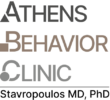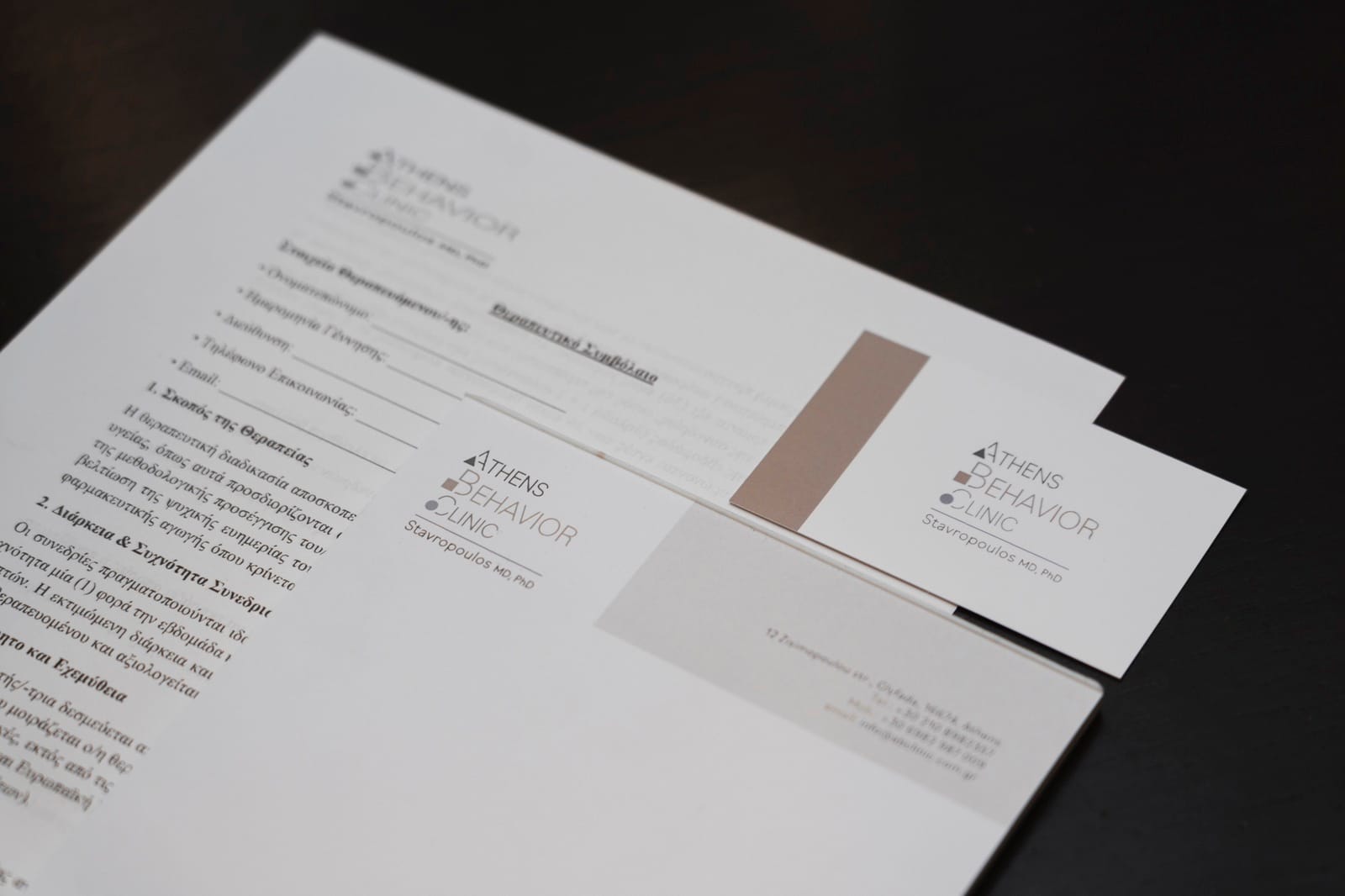Discover the Disorders We Treat & How We Can Support You
At Athens Behavior Clinic Stavropoulos MD, PhD & Partners, we offer specialized psychotherapeutic support for a wide range of mental health disorders, aiming to improve each individual's quality of life.

Anxiety Disorders
Anxiety disorders significantly affect daily life, causing intense stress and worry.
Read more
Anxiety disorders manifest as intense and dysfunctional anxiety that significantly impacts daily life. Key types include:
Generalized Anxiety Disorder (GAD):
Characterized by excessive and persistent worry about everyday matters, often accompanied by physical symptoms such as nervousness and tension.
Panic Disorder:
Sudden and unpredictable panic attacks involving intense fear and physical symptoms (e.g., rapid heartbeat, shortness of breath), often with fear of recurrence.
Agoraphobia:
Anxiety triggered by situations or places where escape might be difficult, often associated with panic attacks.
Social Phobia (Social Anxiety Disorder):
Intense fear of social exposure and judgment, leading to avoidance of social situations.
Specific Phobias:
Intense fear of particular objects or situations (e.g., heights, animals, blood), which significantly limits functioning.
Post-Traumatic Stress Disorder (PTSD):
Re-experiencing traumatic events through flashbacks or nightmares, accompanied by intense anxiety and avoidance of related triggers.
Obsessive-Compulsive Disorder (OCD):
Repetitive intrusive thoughts (obsessions) and compulsive behaviors aimed at reducing anxiety.
Early diagnosis and therapeutic intervention are crucial for managing symptoms effectively.
Psychotic Disorders
They alter the perception of reality, impacting thoughts, emotions, and behavior.
Read more
Psychotic disorders, with Schizophrenia being the most common, are severe and chronic mental illnesses that affect thinking, emotions, and behavior, causing difficulty in distinguishing reality from fantasy.
Symptoms:
- Positive Symptoms: Hallucinations (e.g., hearing "voices"), delusions, disorganized speech and behavior, agitation or catatonia.
- Negative Symptoms: Emotional flatness, social withdrawal, reduced speech (alogia), lack of motivation (avolition), inability to experience pleasure (anhedonia), impaired attention.
- Cognitive Deficits: Difficulties with memory, concentration, and goal-directed behavior.
- Aggression: Hostility, verbal or physical aggression, self-destructive tendencies.
- Anxiety and Depressive Features: Severe anxiety, feelings of guilt, and emotional tension.
Early diagnosis and therapeutic intervention are essential to reduce relapses and improve functionality.
Neurocognitive Disorders (Dementia)
Characterized by memory decline and cognitive impairment, affecting everyday functioning.
Read more
Dementia is a progressive cognitive disorder that affects memory, thinking, and behavior, leading to the gradual loss of a person’s independence.
Key Features:
- Develops slowly during adulthood and worsens over the years.
- The incidence increases significantly after the age of 65.
- Types of dementia include: Alzheimer’s disease, Parkinson’s disease, Frontotemporal dementia, Lewy body dementia, vascular causes, infections (e.g., meningitis), head injuries, substance abuse, hydrocephalus.
- Cognitive decline may range from mild to severe, affecting memory, attention, language, and the ability to perform daily activities.
In advanced stages, support is required for basic daily functioning.
Mood Disorders
Including conditions such as depression and bipolar disorder that severely affect mood.
Read more
Depression
Depression is a common mental health disorder that affects mood, thinking, and behavior, causing intense sadness, hopelessness, and anhedonia.
Symptoms:
- Persistent depressed mood
- Loss of pleasure or interest (anhedonia)
- Sleep and appetite disturbances
- Feelings of guilt or worthlessness
- Difficulty concentrating
- Suicidal thoughts or ideation
Persistent Depressive Disorder (Dysthymia)
A chronic form of mild depression lasting at least two years, characterized by low energy, low self-esteem, and an increased risk of developing a major depressive episode.
Bipolar Disorder
Marked by extreme mood swings, with episodes of mania and depression. Manic Episode Symptoms:
- Elevated or irritable mood
- Inflated self-esteem
- Decreased need for sleep
- Hyperactivity and risky behaviors
Bipolar disorder significantly impacts daily functioning and interpersonal relationships.
Eating Disorders
Involving unhealthy behaviors related to food, seriously impacting health and mental well-being.
Read more
Eating disorders are serious mental health conditions with biological and psychological implications, affecting individuals of all ages and genders.
Anorexia Nervosa
- Severe restriction of food intake leading to significant weight loss
- Intense fear of gaining weight
- Distorted body image
- Types: Restrictive / Binge-Eating-Purging
Bulimia Nervosa
- Recurrent episodes of binge eating with a sense of loss of control
- Compensatory behaviors (vomiting, laxative use, excessive exercise)
- Persistent preoccupation with body weight and shape
Binge Eating Disorder (BED)
- Frequent episodes of binge eating without compensatory behaviors
- Feelings of guilt, shame, and distress after overeating
- Often accompanied by intense anxiety and emotional discomfort
These disorders severely affect physical and mental health and require specialized therapeutic intervention.
Personality Disorders
Affecting the way individuals think, feel, and relate to others.
Read more
Personality disorders are chronic, rigid patterns of thinking and behavior that impair an individual’s functioning and relationships, often causing significant psychological distress.
Prevalence: 9-13% of the adult population
Categories (according to the DSM):
Α. Odd or Eccentric Behavior
- Paranoid:Extreme suspicion and distrust of others
- Schizoid:Detachment from social relationships, limited emotional expression
- Schizotypal:Strange beliefs, thoughts, and behaviors, social discomfort
Β. Dramatic or Erratic Behavior
- Antisocial:Disregard for the rights and feelings of others
- Borderline:Intense and unstable relationships and emotions, fear of abandonment
- Histrionic:Excessive need for attention, dramatic behavior
- Narcissistic:Grandiosity, need for admiration, lack of empathy
C. Anxious or Fearful Behavior
- Avoidant:Intense fear of criticism and rejection, social inhibition
- Dependent:Excessive need for care and submissiveness
- Obsessive-Compulsive (OCPD):Perfectionism, strict adherence to rules and order
Personality disorders significantly impact daily life and require a tailored therapeutic approach.
Neurodiversity
Refers to neurodevelopmental conditions such as ADHD and Autism Spectrum Disorder, affecting thinking and behavior.
Read more
Neurodiversity is a term used to describe the natural variations in brain function and the nervous system, which influence how individuals think, feel, learn, and interact with the world around them.
Key Features:
Neurodiversity is not a disorder but a difference in neurological development. It may coexist with challenges in social interaction, communication, or behavior, affecting daily functioning.
Examples of neurodivergent profiles:
- Autism Spectrum Disorder (ASD): Difficulties with social communication, need for routines, and intense interests.
- Attention Deficit Hyperactivity Disorder (ADHD): Inattention, impulsivity, and hyperactivity impacting organization and focus.
- Learning Difficulties: Dyslexia, dyscalculia, dysgraphia, affecting academic performance.
- Tourette Syndrome: Motor and vocal tics with varying intensity and frequency.
Understanding and embracing neurodiversity fosters environments that support each individual's potential, promoting inclusion and equal participation in society.
Addictive Disorders
Involving dependency on substances or behaviors, negatively impacting daily functioning.
Read more
Addictive disorders involve the use of substances or repetitive behaviors that lead to significant impairment in daily functioning, despite negative consequences.
Key Characteristics of Addiction:
Loss of control, increased tolerance, withdrawal symptoms, and social or occupational impact.
Substance Addictions:
- Alcohol: Behavioral and physical changes, intense withdrawal symptoms.
- Stimulants (Cocaine, Amphetamines): Euphoria, overstimulation, psychomotor and physical effects.
- Psychedelics – Cannabis: Mood and perception changes, physical and psychological withdrawal.
- Opioids (Morphine, Heroin): Initial euphoria followed by apathy and severe withdrawal symptoms.
Behavioral Addiction – Gambling:
Repeated engagement in gambling, loss of control, lying, relationship or job loss, financial ruin.
All forms of addiction significantly impact functioning and mental health, requiring specialized treatment.
Why Choose Us
- Experienced and Specialized Therapists
- Personalized Approach
- Modern, Evidence-Based Assessment Tools
- Ασφαλές & εμπιστευτικό περιβάλλον
What You Gain
- A Clear Understanding of Your Difficulties
- Guidance Toward the Right Treatment Plan
- Ongoing Support Every Step of the Way
The Steps of Your Personal Journey

Stage 1
History Taking – Clinical Assessment
The initial interview aims to gather specific information about the client’s current situation, as well as their relationships with significant others over time. This assessment helps the therapist gain a better understanding of the client’s personal history and can serve as a tool for evaluating progress throughout therapy.

Stage 2
Development of the Therapeutic Plan
The therapy plan outlines the therapeutic goals, aiming to achieve them collaboratively. These goals are co-created by the therapist and the client. Each plan is unique and tailored to the individual needs of every client.

Stage 3
Psychotherapy Implementation
Throughout the sessions, the therapist may use various strategies or techniques, selecting those that best align with the chosen therapeutic approach and suit the client’s goals and needs. The focus remains on effectively supporting the client throughout their journey.
Contact Us
Have questions or want to book an appointment?
We offer both in-person & online sessions.
Follow Us
- Zisimopoulou 12, Glyfada
- 2108982357
- Monday - Friday: 8:00 - 22:00

